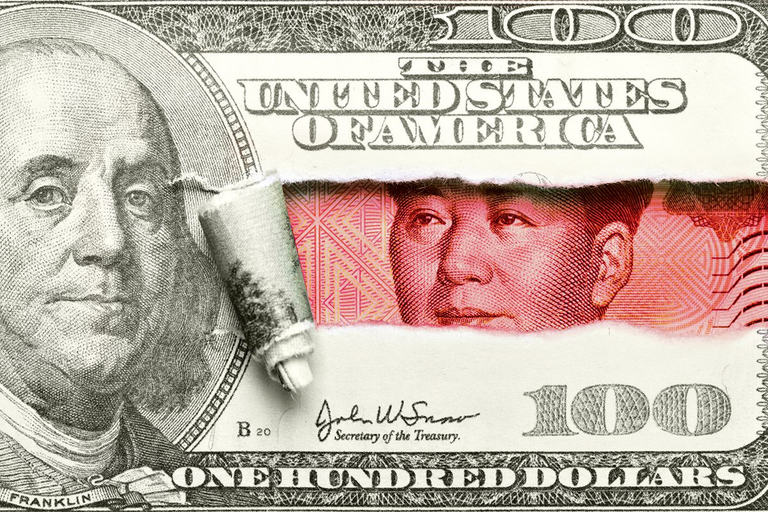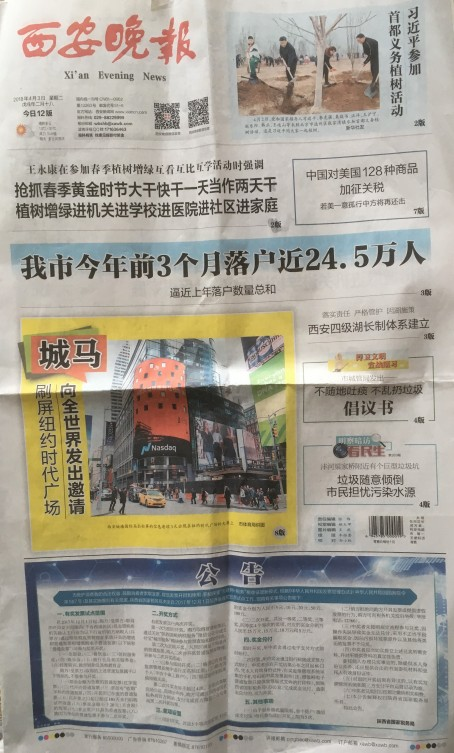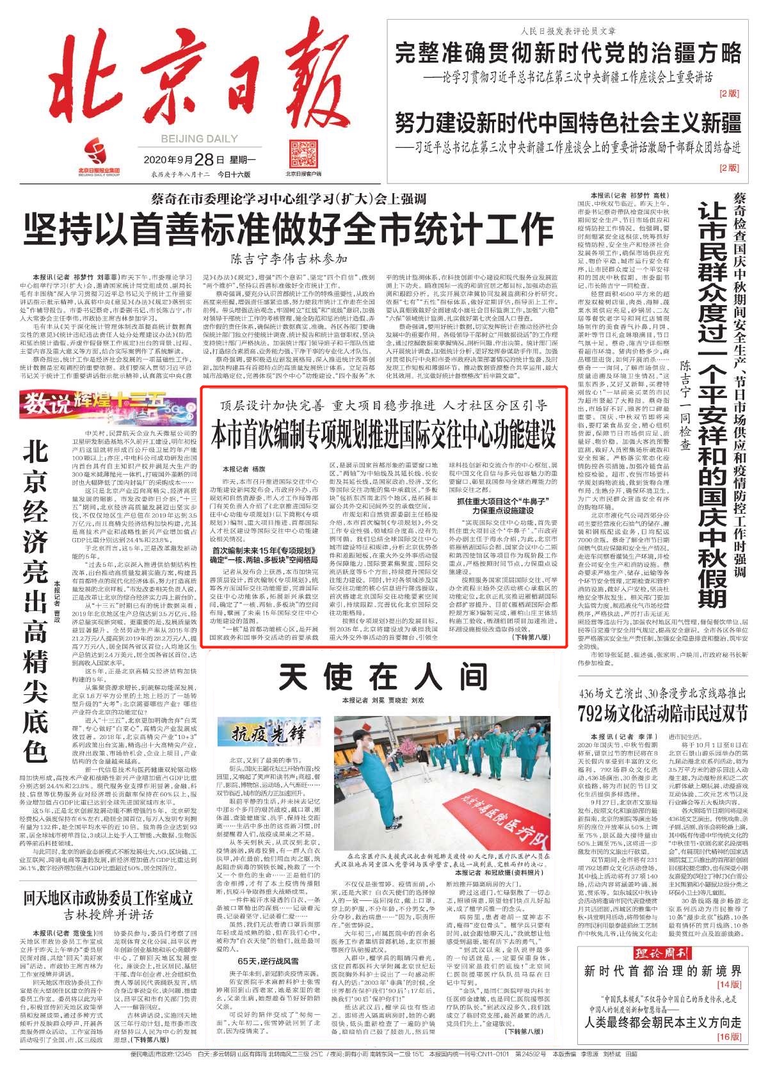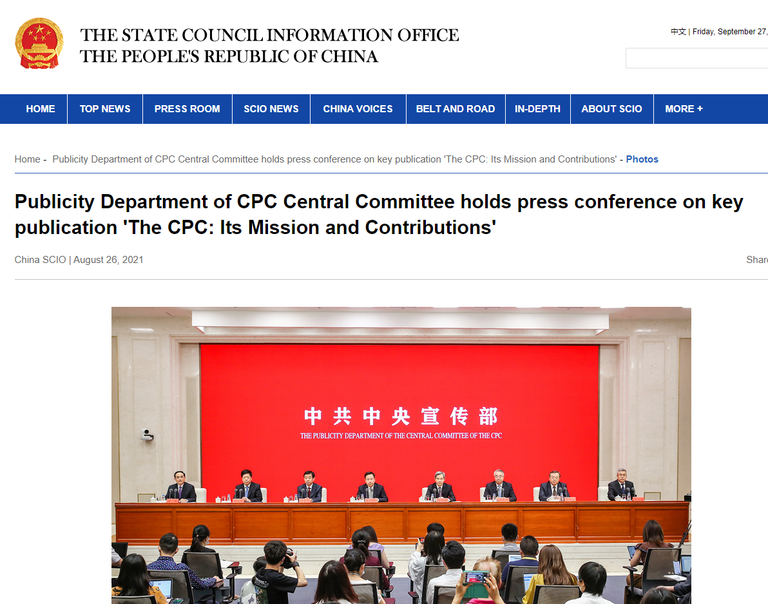China and News Media Diversity - Yes It Does Exist
I will admit that I am fascinated by China, on so many different levels. But it is a country that is increasingly causing concern for the West and indeed the wider world, particularly for Taiwan. China is now the world's second largest economy after the United States and is continuing to build up its military power. Global Firepower now ranks China first for naval power, beating the US. Although the US retains the top position for overall military capability.
China is a uniquely constituted society. In the past few decades we have seen it embrace a strong element of capitalism while still retaining a communist government structure. China is, in effect, a hybrid society. Through this unique structure it has used capitalism to build an almighty economy. Although there is still much poverty within China you will simultaneously find a growing list of millionaires.

At the start of the century the West's approach to China was to encourage its use of capitalism and grow its economy in the belief that China would come in from the cold so to speak, and diplomatic relations with China and the world would strengthen. There was indeed an element of this, and we have made much progress when it comes to relations with China. But sadly the once heralded golden period for global relations with China is over. Tensions continue to mount.
But what of the Chinese media? What are the Chinese people being told and fed when it comes to news consumption. China has the largest media market in the world believe it or not. But of course we know the Chinese Communist Party (CCP) likes to control the flow of information in and out of the country and has its own state run news broadcasters, papers and other controlled news and information outlets. But it may surprise you to learn that in recent decades there is a new diversity that has surfaced within the Chinese media landscape.
China’s Emerging Media Diversity
China's new emphasis on building a stronger economy has had a massive impact on all aspects of Chinese society and the media is no exception. In the last fifty years the volume and variety of print news media has increased considerably. We have witnessed a key market trend where readers in China have now moved away from the restricted provincial and national party newspapers, instead Chinese readers are increasingly demanding more local and informal newspapers. For example the city of Xi’an has its own daily newspaper entitled the Xi’an Evening News, this paper carries extensive and detailed reporting on local issues and issues of significance to Xi’ans’ residents. The newspaper is well received by the city's population and is highly regarded and preferred to national papers.

Above is the front page of a copy of the X'ian Evening News, 2018.
However, despite the liberalisation employed by the government in recent years the Chinese Communist Party (CCP) is still keen to keep a grip on its media monopoly. Since 1978 the diversification of Chinese media has been accompanied by a party media policy which ensures control, as well as sometimes implementing campaigns which assert ideological criticism. Most Chinese journalists are all too aware of the need to be careful when writing things in black and white.
The Commercialisation of Chinese News Media
In China television and radio audiences have a different pattern to newspaper readership. While television and radio viewers and listeners are representative of the various social groups which exist in China, newspaper readers tend to be more educated, younger individuals from urban communities often from elite occupational backgrounds. They will, generally, also read a number of newspapers.
Out of all the high readership newspapers the Beijing Evening News is one of the most popular. The Beijing Daily trumps the People's Daily which is the nation's main newspaper with just under three million readers. However, it is the Sichuan Daily with a circulation figure of over eight million copies which is the most popular Chinese newspaper covering local news, sport, and business etc. In the last twenty years the number of newspapers has increased in China by two thousand, which in part is the result of a distinct commercialisation process.

Above a copy of the front page of the Beijing Daily News, 28th September 2020.
Commercialisation has engendered more diversity and more investigative journalism and the introduction of a type of privatization of the news media despite tight state control. However, many argue that the plethora of new news publications has not contributed to the salubriousness of media plurality in the country. CFR Press Fellow Matt Pottinger, believes that the new media landscape remains a ‘populist, socialist media, just as controlled by the government'.
Chinese Press Censorship
There are more then twelve Chinese government bodies and agencies tasked with enforcing laws dealing with information flow in and out of the country. The Communist Party’s Central Publicity Department (CPD) works with the General Administration of Press and Publication (GAPP) and State Administration of Press and Publication (SARFT) to ensure the promotion of party protocol within its content.

It is within this dual system of state controlled media and the creeping privatisation process where China’s newspaper industry struggles to satisfy the journalistic values of independence, accuracy and truth. For example many western, and Chinese, commentators consider the state news agency Xinhua simply as a government tool for propaganda and the CPD regularly issues directives ordering media outlets restricting content which is politically sensitive such as Tibet or Taiwan for example. In March 2010 when thirteen daily newspapers published content encouraging the removal of a household registration which hindered rural migrant workers access to public services system they were censored and threatened with punishment (Reporters Without Borders, 2010).

It is clear that China still demands significant state control of the media which has a negative effect on journalists ability to investigate, be impartial and present news in an autonomous capacity. It is however important to note that China seems to be moving in a direction which is becoming more tolerant of the idea of an independent press and certain publications have attempted to move away from state control with. Furthermore, China has also managed to a certain extent diversify its newspaper output and this has been well received by many Chinese. It's a mixed picture in many ways in China when it comes to the freedom of the press. But I think it's fair to say progress has been made. Whether that continues or not is another question.
Peace!
Greetings @peaceandmoney ,
Interesting how keen you are in taking on a controversial issue or two. Presenting an issue without committing either pro or con....leaving it open for discussion. Does Bleujay want to wade in? I think not. hehe
Some of the subjects I would not mind commenting on however, 'Less is More' when it comes to speaking these days...even on Hive ^__^
Congratulations on your purchase of Hive!
Kind Regards,
Bleujay
Hello my friend @bleujay, lovely to meet you on chain again. Yes, I never shy away from contentious issues and as you rightly point out I try and remain as neutral as possible, exploring all parts of the picture. Feel free to wade in any time you like!
But yes I think I understand what you're saying about less is more, even when it comes to Hive.
Good to see you again and thank you for your support.
@peaceandmoney, I paid out 0.041 HIVE and 0.007 HBD to reward 1 comments in this discussion thread.
Hey @commentrewarder, nice to see you in action! How is this service working then? You say you are rewarding 1 reply but which one are you rewarding?
There is one reply to your post, which you upvoted. That is the one being rewarded.
The author of the blog post decides which replies to reward.
Okay thanks for explaining, I think I've got it!
For s country that banned Pooh because some people say he looked like Xi, don't expect much press freedom 😅